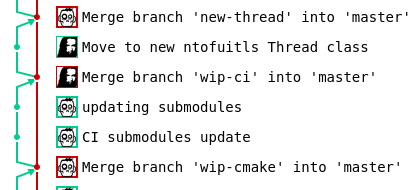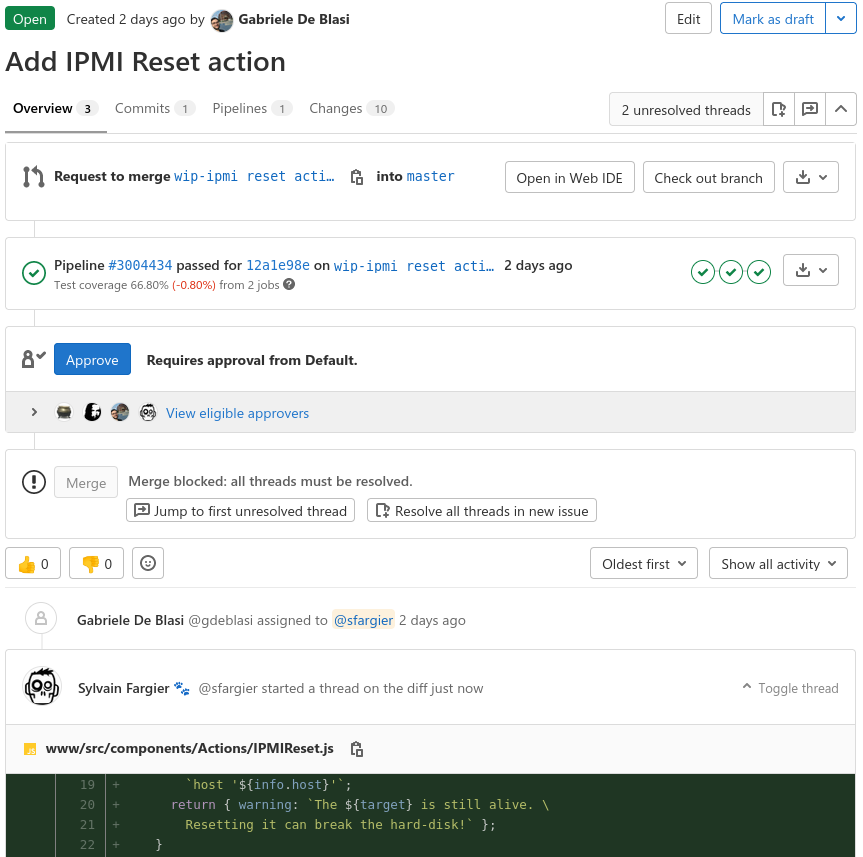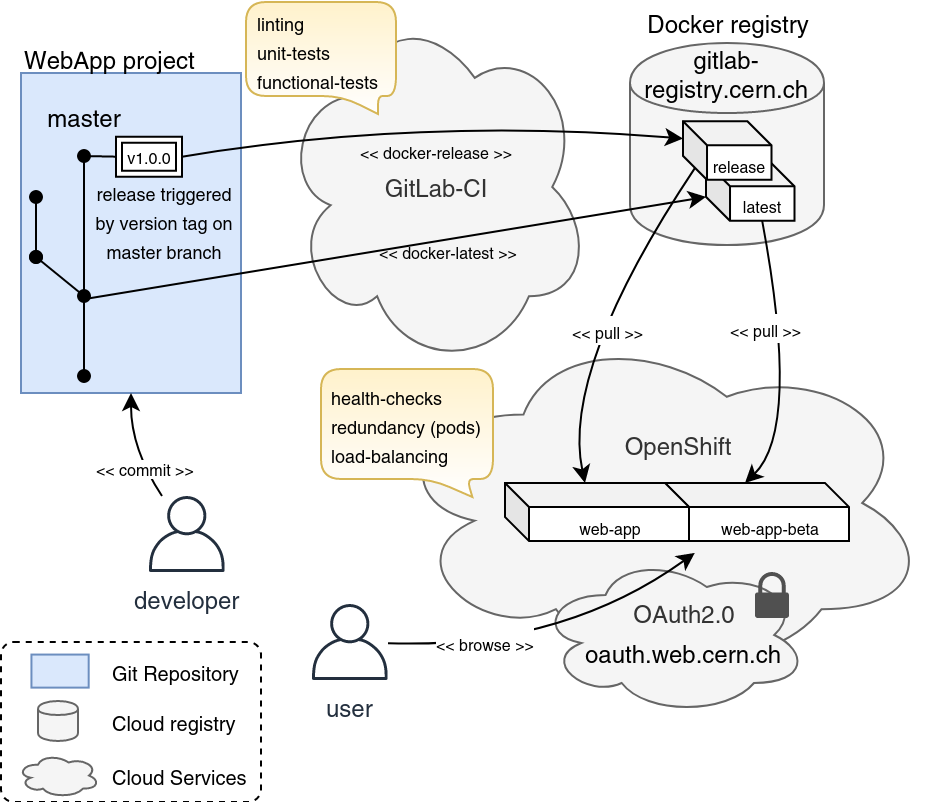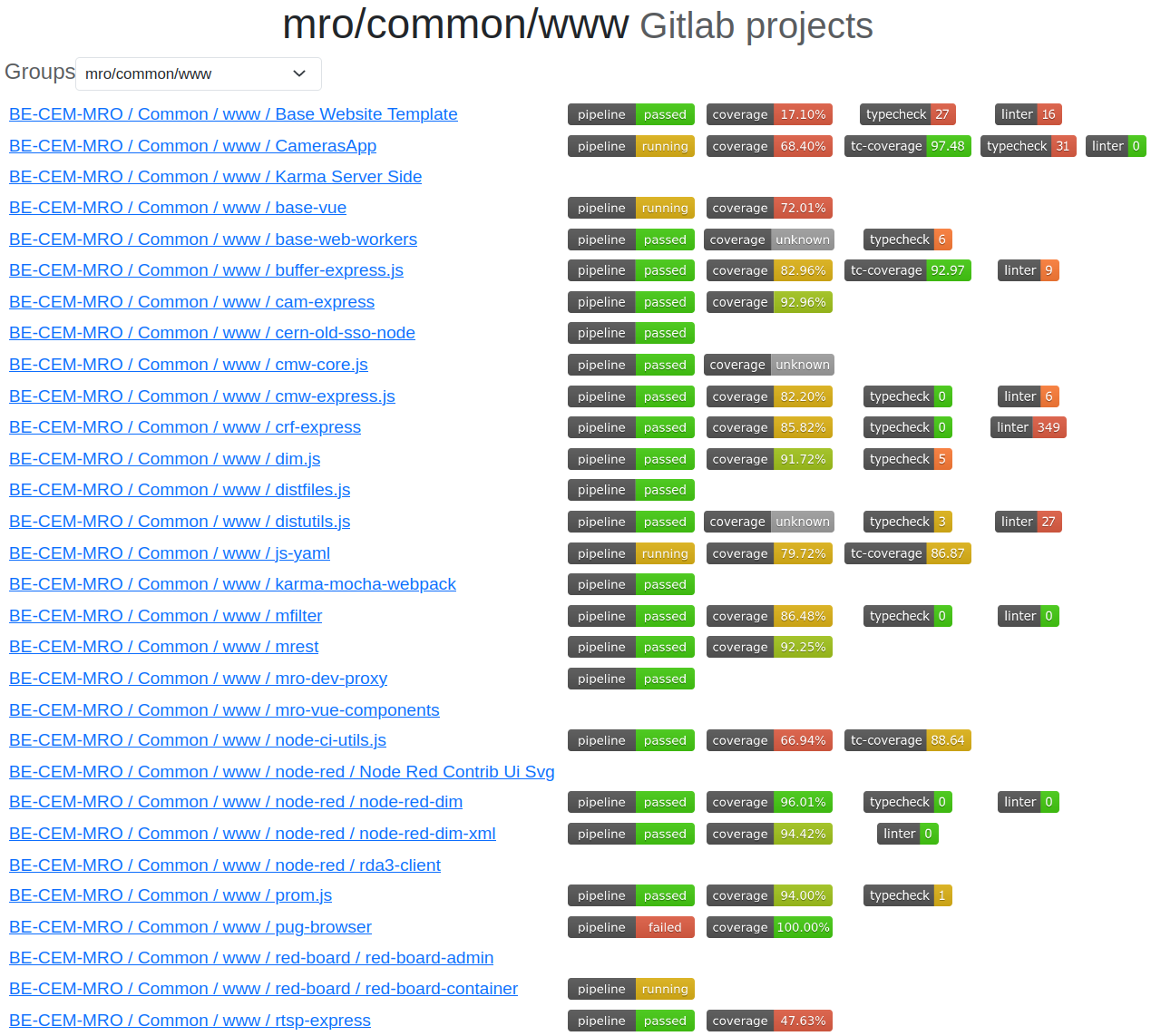Let's talk about Workflow !
Sylvain Fargier, CERN
07/11/2023

Introduction

Introduction

-
About the speaker : Sylvain Fargier
- Started to work in 2006 ~17 years ago
- For various companies : SAGEM, WyPlay, Somfy, CERN ...
- With different roles : Software developer / integrator / architect
- Always diligent about tooling and work-environment, all environments created in past jobs are still in use

Introduction

-
About the presentation, 3 parts:
- When you should take the initiative to talk about workflow
- Why it should matter to you as a software developer
- How you can implement it
When ?

When should you take the initiative to talk about workflow
Short answer: always because it matters !
When ?

- When to talk about workflow and methodology ?
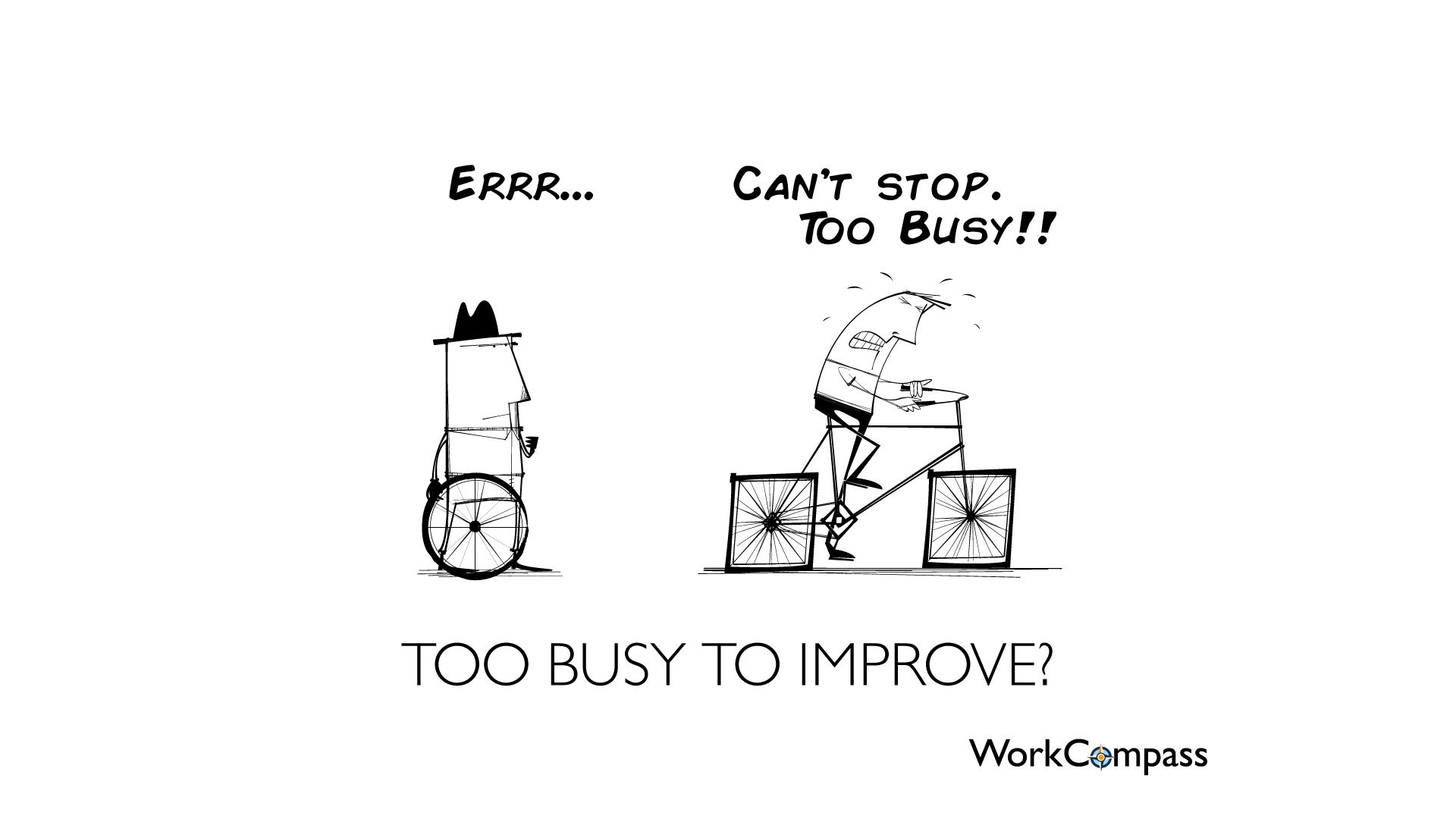
(source: Wikimedia)Improving must be part of your workflow !
- If your project can fit one of those:
When ?

- Then it's already late !
My codebase is so huge that it's difficult to make any changes
-> You're probably lacking unit-tests, projects don't scale well without it.
> My experts are so good that it's really difficult to hire someone
-> As soon as you have a sane codebase, even young-developers should be able to contribute.
> It takes ages for newcomer to make a simple fix
or
> That's the third young developer that leaves the company this year
-> You probably created a barrier that makes most newcomers un-comfortable in making any change in your golgoth
It's probably time to slice the beast !
- If you hear the following :
When ?

- Then someone missed the point, this is your workflow, it needs to be tailored to your need !
> We don't have time for this !
-> Will you have more time when the next project starts and this one requires bug-fixes ?
> This is not for us, we do embedded (or xxx) development
-> The more complicated your platform is the harder it will be to debug and fix incoming issues once development is over.
> I know my job, I don't make bugs !
-> Even if you write only bug-free code (which I doubt) your environment is likely to change (compiler, dependencies, protocols ...) creating side-effects.
> I don't need all this, it's a loss of time !
> Unit-tests are not needed, I manually test everything !
> I don't need all this, I'm alone on my projects !
-> Either your products are really-really simple (meaning you're molding bricks) or your projects probably tend to regress in time.
As soon as you are working for a company, maintenance and reliability does matter, you should never consider you'll always be alone and nothing will change.
- Final answer :
- It's really important to head-up from time to time !
- You're the best fitted to know how you should work, advocating for a sane workflow and methodology is your responsibility
- You're not being asked to "piss lines code" but to build and implement robust features in products
- And side info, I've really heard all those sentences at least once !
When ?

Why ?

Why should it matter to you as a software developer
- Why should you worry about your workflow ?
-
For any of those reasons (amongst others):
- You are concerned about maintainability, robustness or quality.
- You work in a team and efficiency matters.
- You prefer to spend time improving your workflow rather than losing it on repetitive tasks.
- You may be managed by non-software-developer, so the initiative is yours
Why ?

- A workflow is: how you get work done
- Always Keep It Simple Stupid (KISS), It must be easy to understand and jump-in for anyone !
- You can call it Agile, Scrum, XP, LEAN or whatever, it has to be yours and tailored for your need !
Why ?


Illustration: Wikimedia Commons (CC)-
A workflow to get better code-quality, through :
- Style : fasten readability and reuse
- Lint : detect miss-constructs and errors with a first glance
- Unit-Tests ("White-box testing") : ensure it does what it's meant for
Why ?


(source: Redbubble.com)-
That's not sufficient, enforce this through :
-
documentation : explain tricky parts, make your work nice to users
- even if you're your own user !
-
reviews : external overview of your work, ensures it's readable and neat
- must always be with good intent !
-
Test Driven Development (TDD) :
- Tests are painful, you'd rather write it first
-
documentation : explain tricky parts, make your work nice to users
Why ?


(source: Medium.com)-
A workflow to get better maintainability, through :
-
Modularity : enforces code reuse
- you've spent time writing clean high-quality code, let's maximize its reuse !
- Always keep in mind: KISS
-
Continuous Integration (CI)
- build to detect environmental changes asap
- ensures your code-quality criteria are respected
- Makes your efforts visible to others
-
Modularity : enforces code reuse
Why ?


(source: Wikimedia)-
A workflow to get better product-quality, through :
-
Integration tests ("gray-box testing") :
- Ensures everything works altogether, focus on communication and core features
-
Functional tests ("black-box testing") :
- Ensures features and product is behaving as expected
-
Integration tests ("gray-box testing") :
Why ?

- A workflow to release the pressure, through :
-
Continuous Delivery (CD) :
- Separate devs from admins
- Any dev can make it to production not having to understand the full stack
-
Continuous Delivery (CD) :
Why ?


General DevOps cycle (source: medium.com)Style, Lint, (type)check : because you like it shinny
Documentation and KISS : because you like it crystal-clear
Unit-/Integration-/Functional-Tests : because you like when it works
CI/CD : because you like when it rolls on its own (and you're a lazy cat)
All this because it needs to scale
Conclusion

Not working with those would be like driving with eyes closed, it may work, but not for long
How ?

How can you implement it
- This is not the answer on "how to implement your workflow" this is our custom solution
- take it as a simple example !
- It is initially based on Scrum with XP practices but is evolving depending on the team's needs
- Your workflow doesn't have to stick with literature, take the best, drop the rest and make it tailored to your need !
Introduction

- Homogeneous
- On GitLab
- CI and tools rules
- Containerized build environment
- Directory layout, naming, styling ...
- Consistent techs and frameworks
- Documented
- templates & boilerplates (cpp/web)
- guidelines & readmes
- playgrounds & live-documentation
- Formal documentation streams and tooling
Projects & Repositories

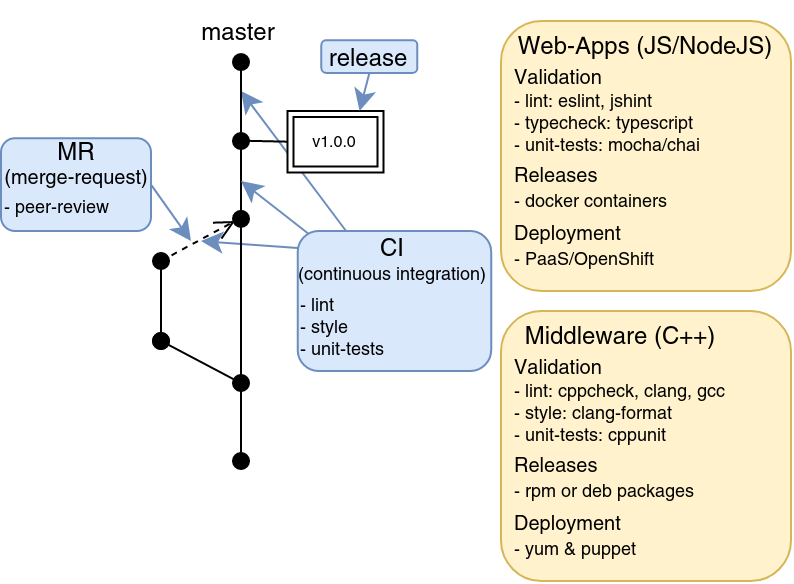
Respository organization and workflow- Backlog and sprints
- Jira board to aggregate several projects
- Using per-project releases
- Using a planning-poker
- KanBan board (see Jira board above)
- Daily-Scrum
- On Mattermost In addition to on-site stand-up dailies (on Monday)
-
Homogeneous workflow rules
- Large number of repositories and users
-
Enforced using automated tools
Project management

KanBan board & Daily-scrums
(source: CERN Jira, CERN Mattermost)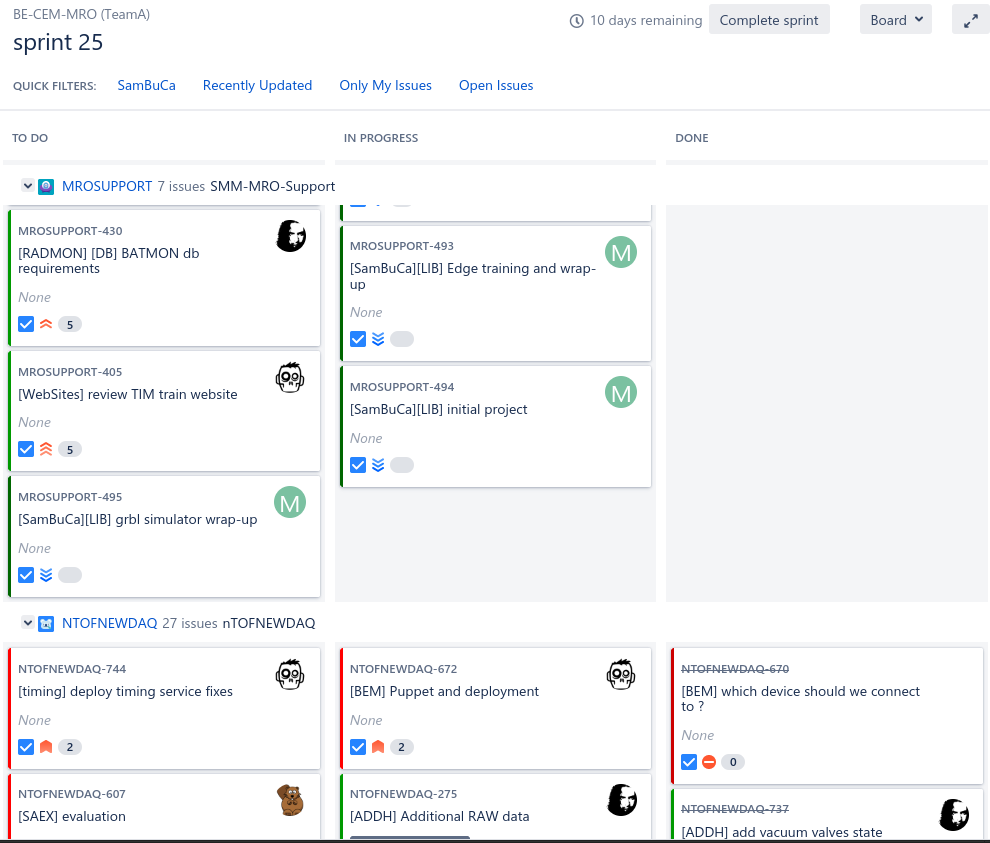
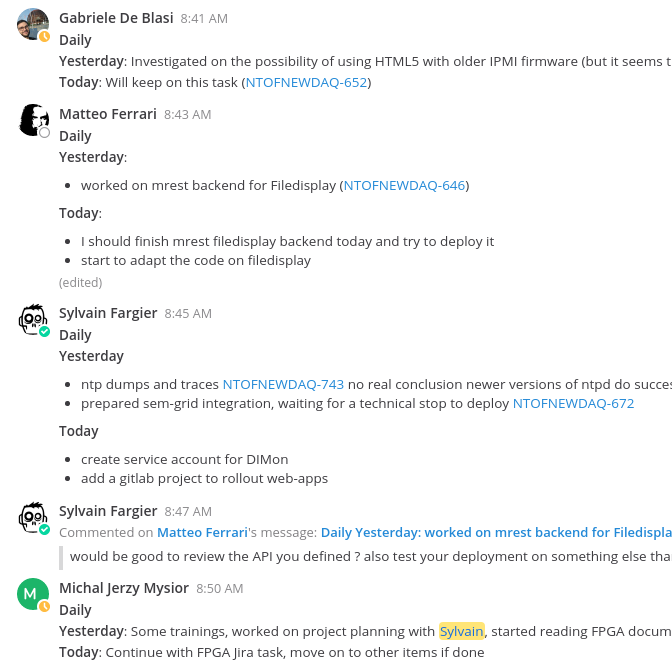
- Peer-review oriented workflow
- All work must be reviewed before being merged
- Using CERN/GitLab merge-requests
- Relying on CI tests and analysis results
-
Per component maintainers
- To empower and give sense of responsibility to developers
-
- When you don't know yet how to achieve something, a white-board is essential !
Team work

- Weekly code-reviews
- Show your work to others
- Open discussions and exchanges
-
Weekly builds
- Rebuild and validate everything
- Dependencies, platforms, environment evolves
- "Better fix sooner than later"
- Pair coding and reviews
- Since software is all about learning
Quality & reviews

A good week is when you learnt something, or you're proud to share your work
Playground code examples
(source: base-vue playground)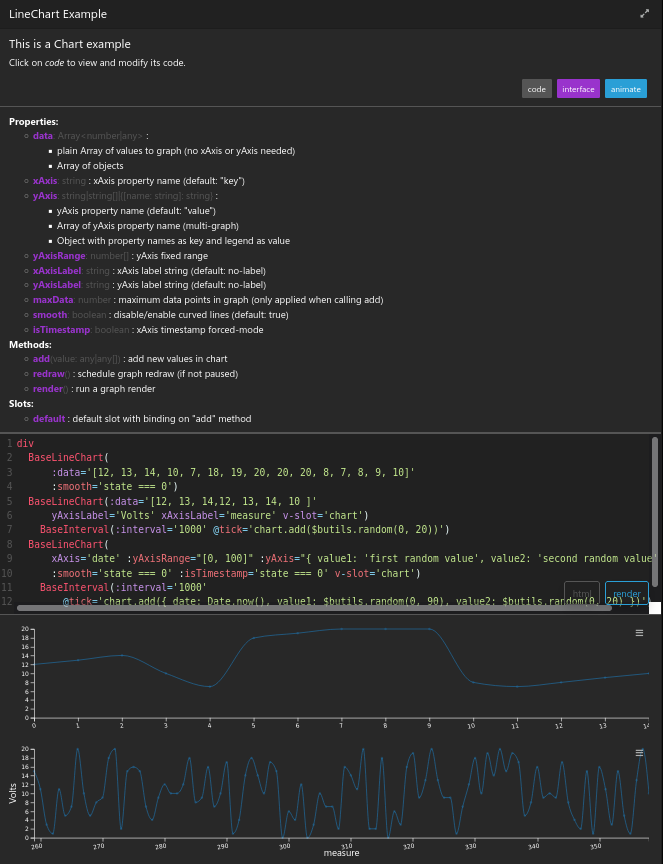
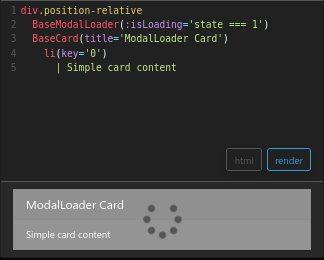
- Automated deployments
- For web-applications using CERN/OpenShift
- For middleware using packages (deb, RPMs) and Puppet
- Roles separation
- Developers are not admins but can trigger software deployment
- Traceability and reproducibility
- Version tag based (v1.x.x)
- Deployed from versioned build environments
Deployments & Production

- n_ToF DAQ
- 8 Web-Apps, 2 Desktop Apps, 24 RPMs packages, full CD (Puppet, OpenShift)
- ~2 years development, in production since 2020
- Project safely transferred to another team for maintenance (EP-DT-DI)
- Development Team: 1 staff, 1 fellow, 1 pjas
Example deployments 1/2

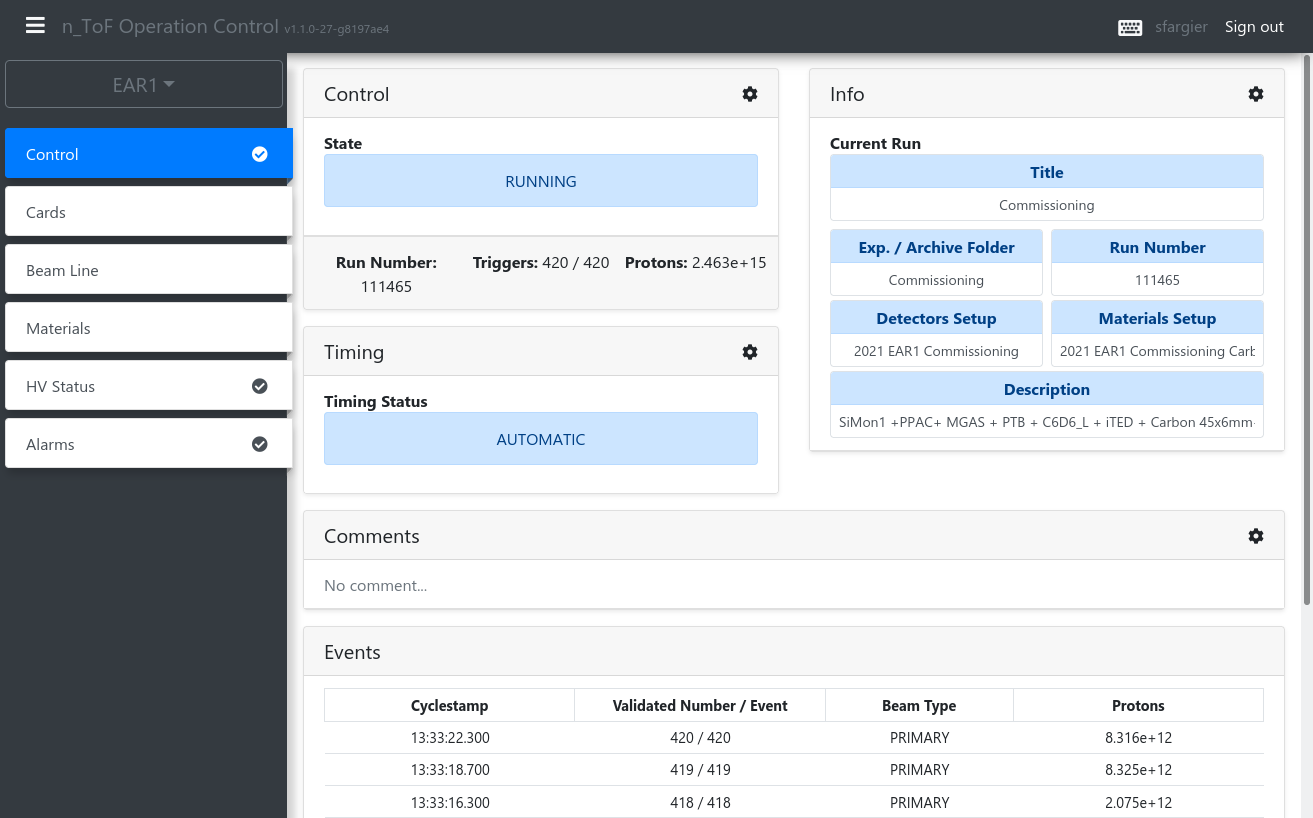
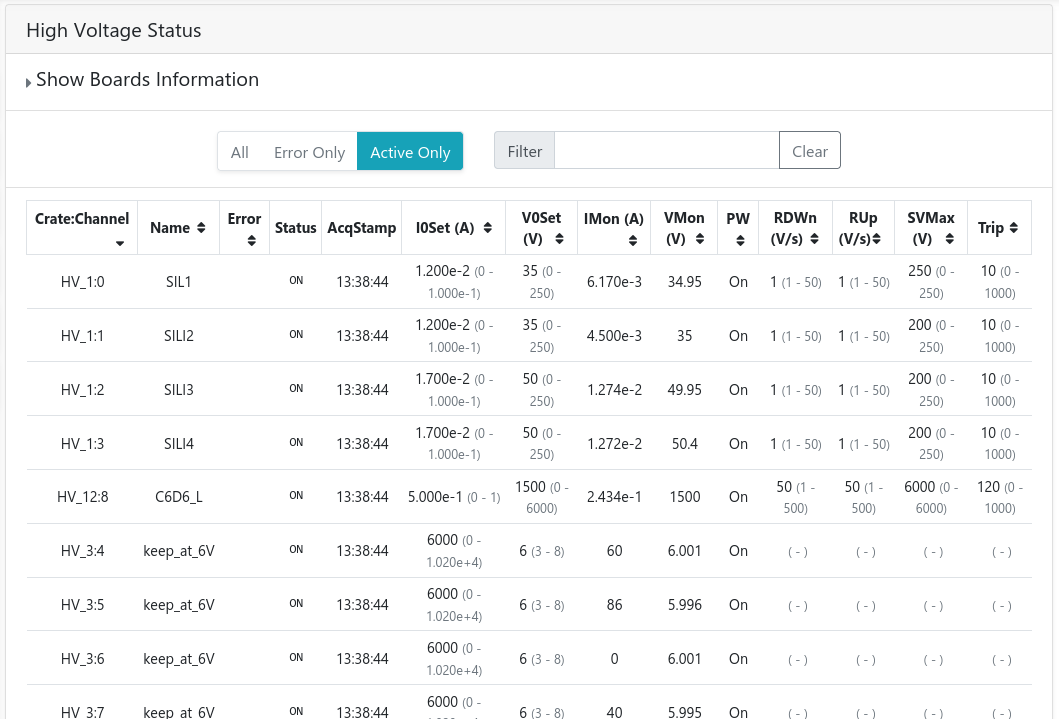
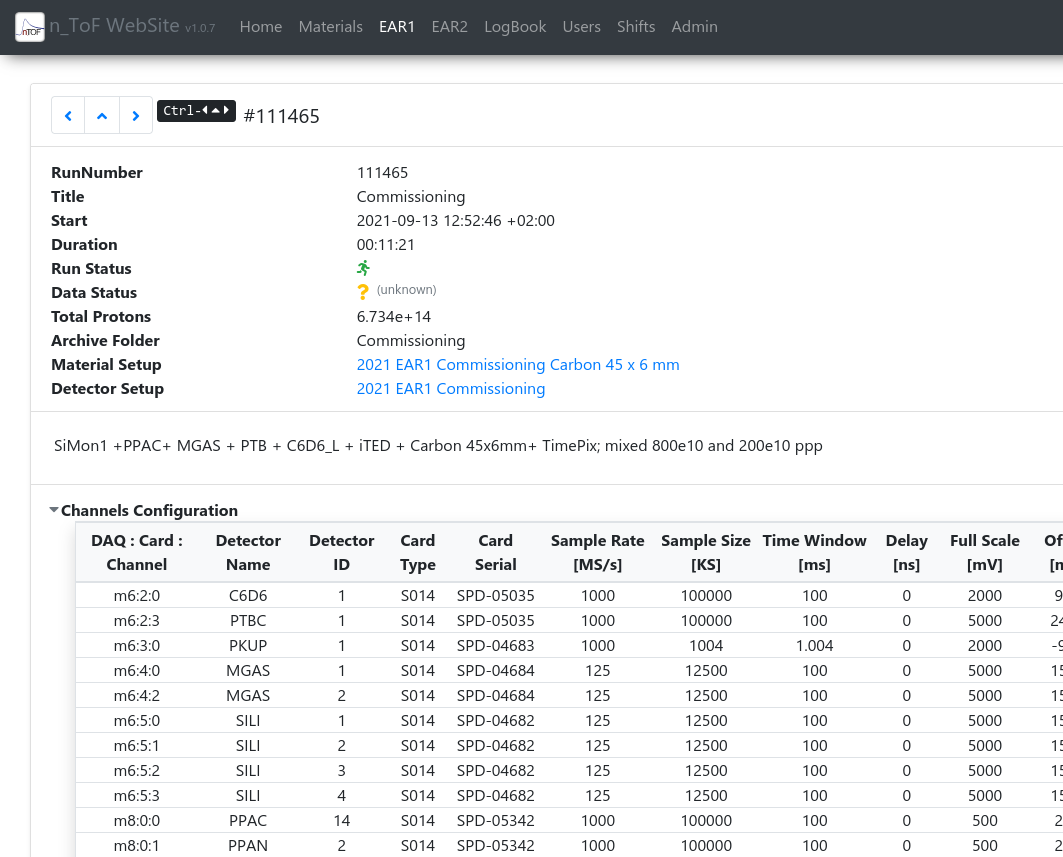
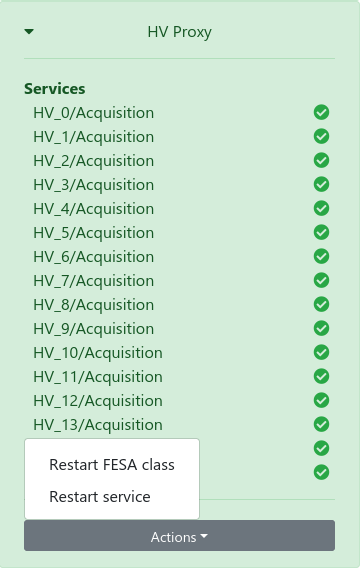
n_ToF applications
(public WebSite, DIMon, operation-control)
n_ToF continuous deployment (EDMS 2417691)- MRO developments
- 20 Web-Apps, ex: fixed-displays, TIM, CHARM devices, cameras, alarms, RadMon, SSVG ...
- 10 accdev (TN) deployments, ex: drivers, FPGA firmwares, libraries ...
- 1 Functional test framework supporting palmers, encoders, PLCs, FESA ...
- Development Team: 2 Staff, 1 Fellow, 1 TECH
Example deployments 2/2

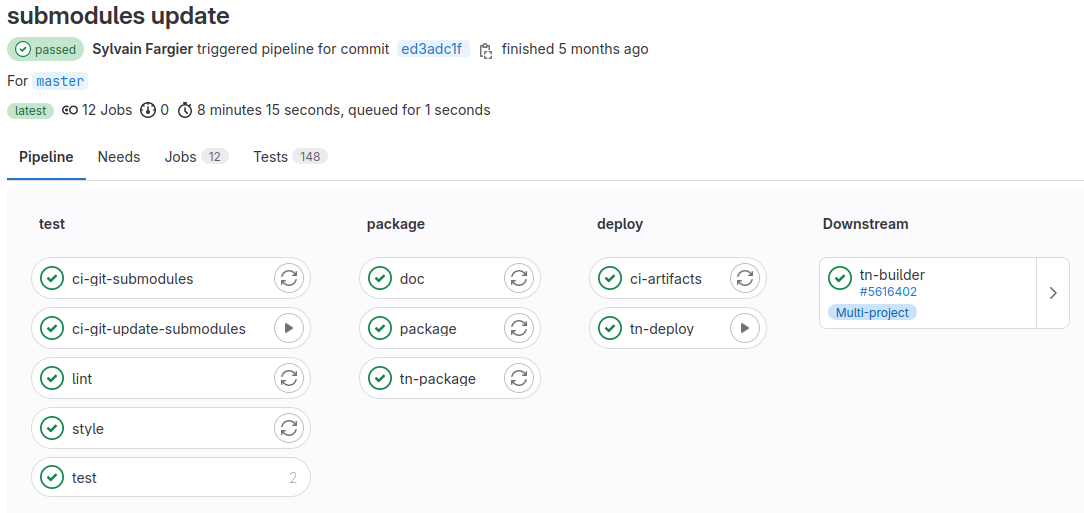
Example pipeline: libccut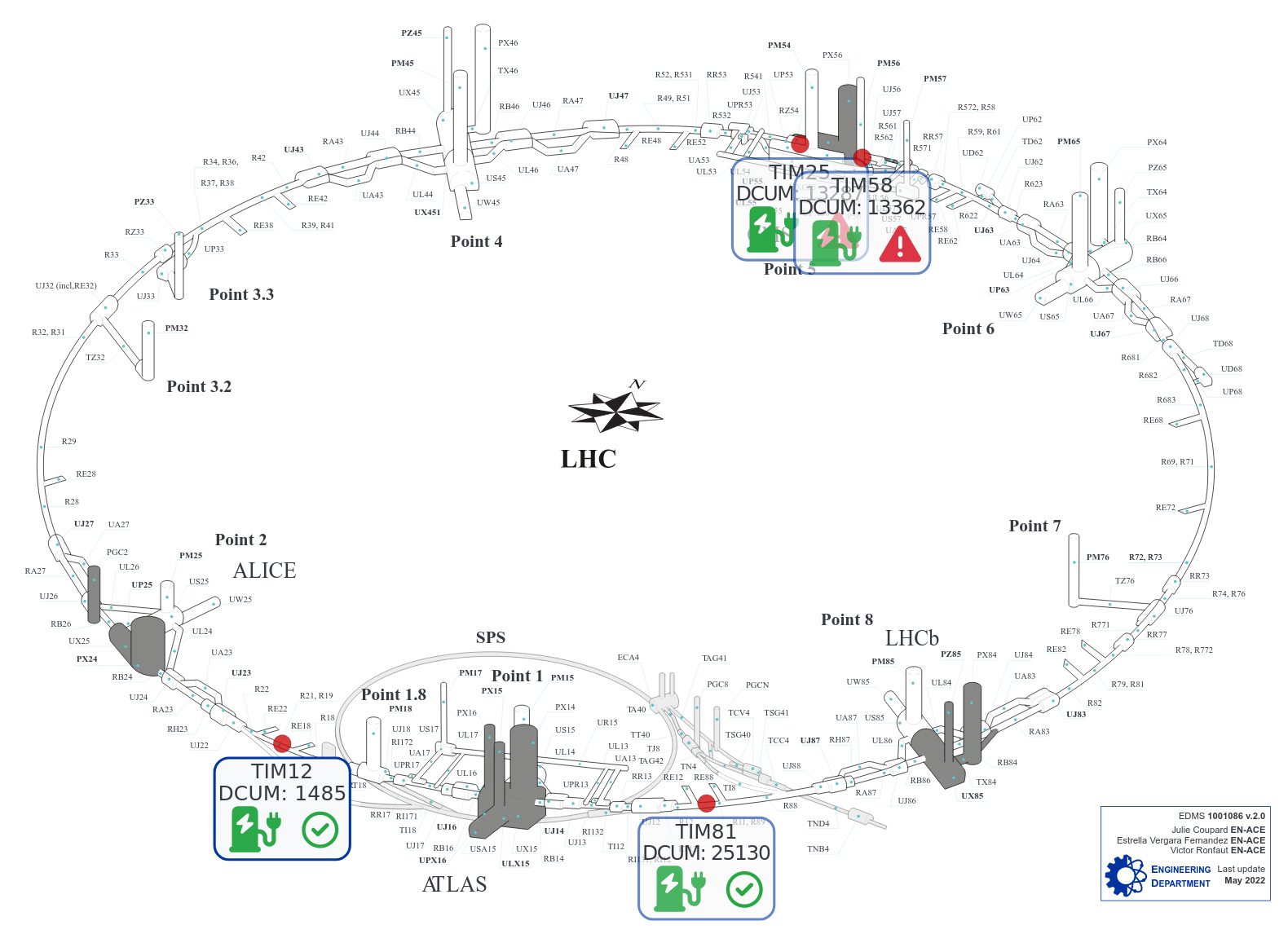
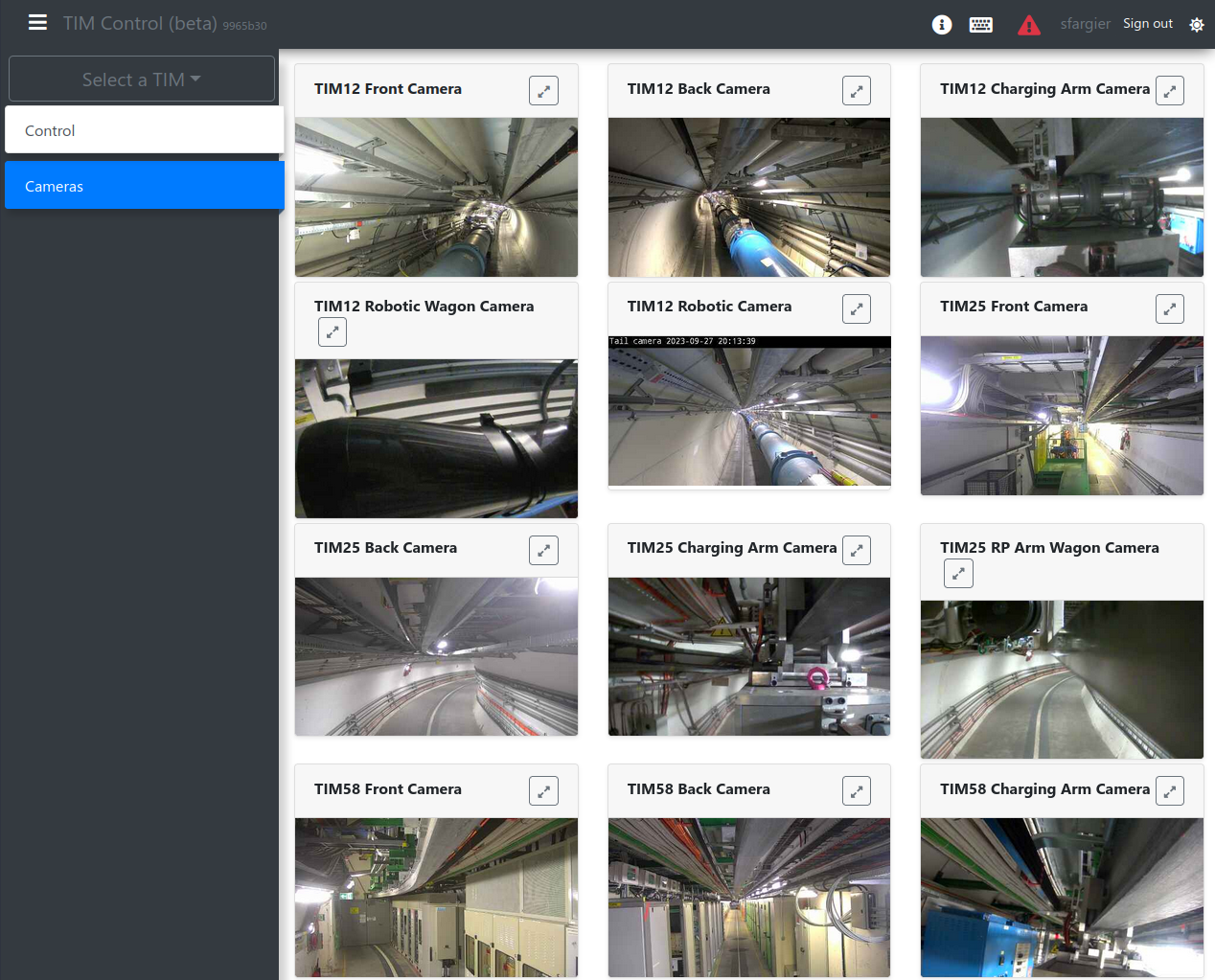
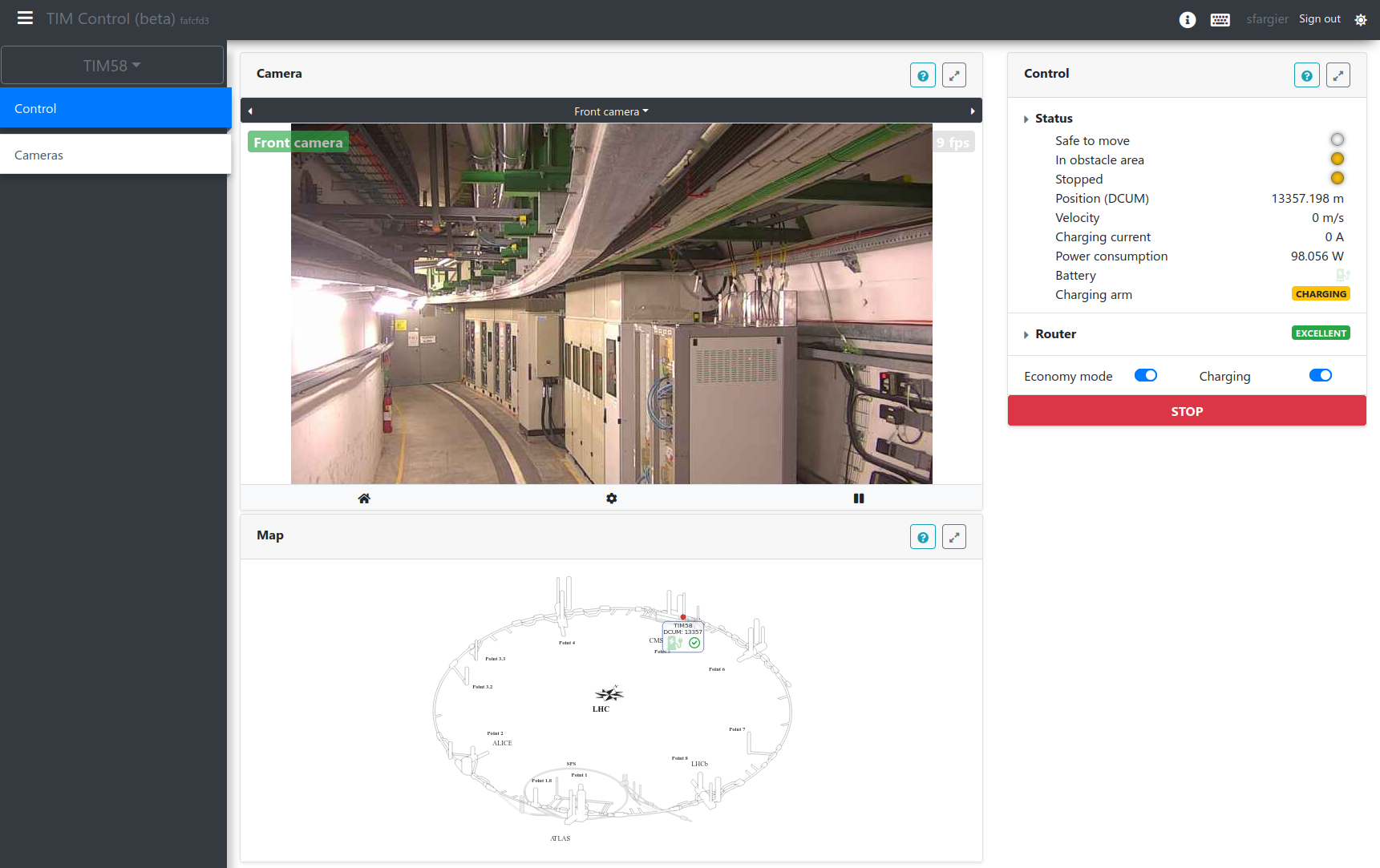
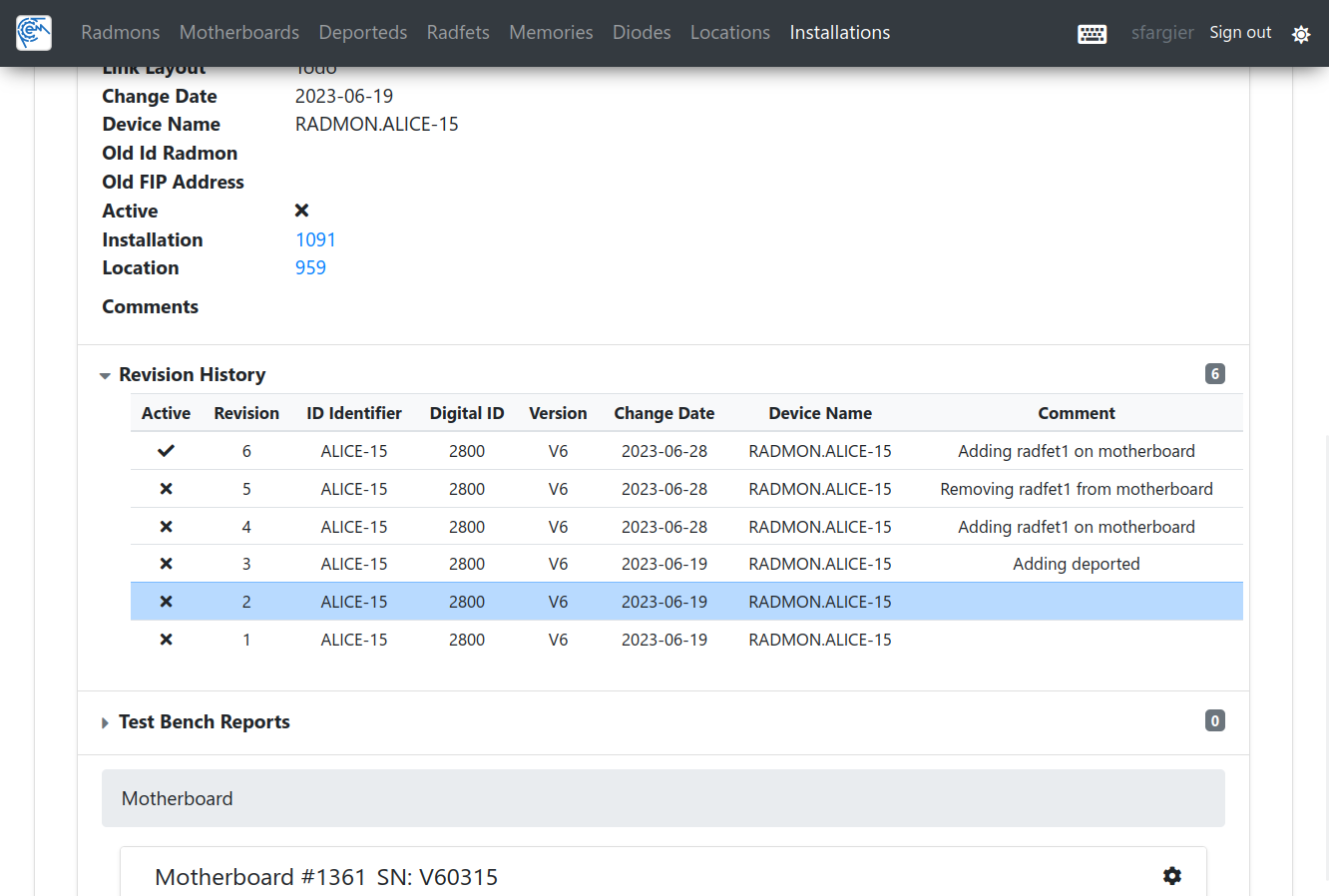
MRO applications
(TIM, RadMon, SSVG...)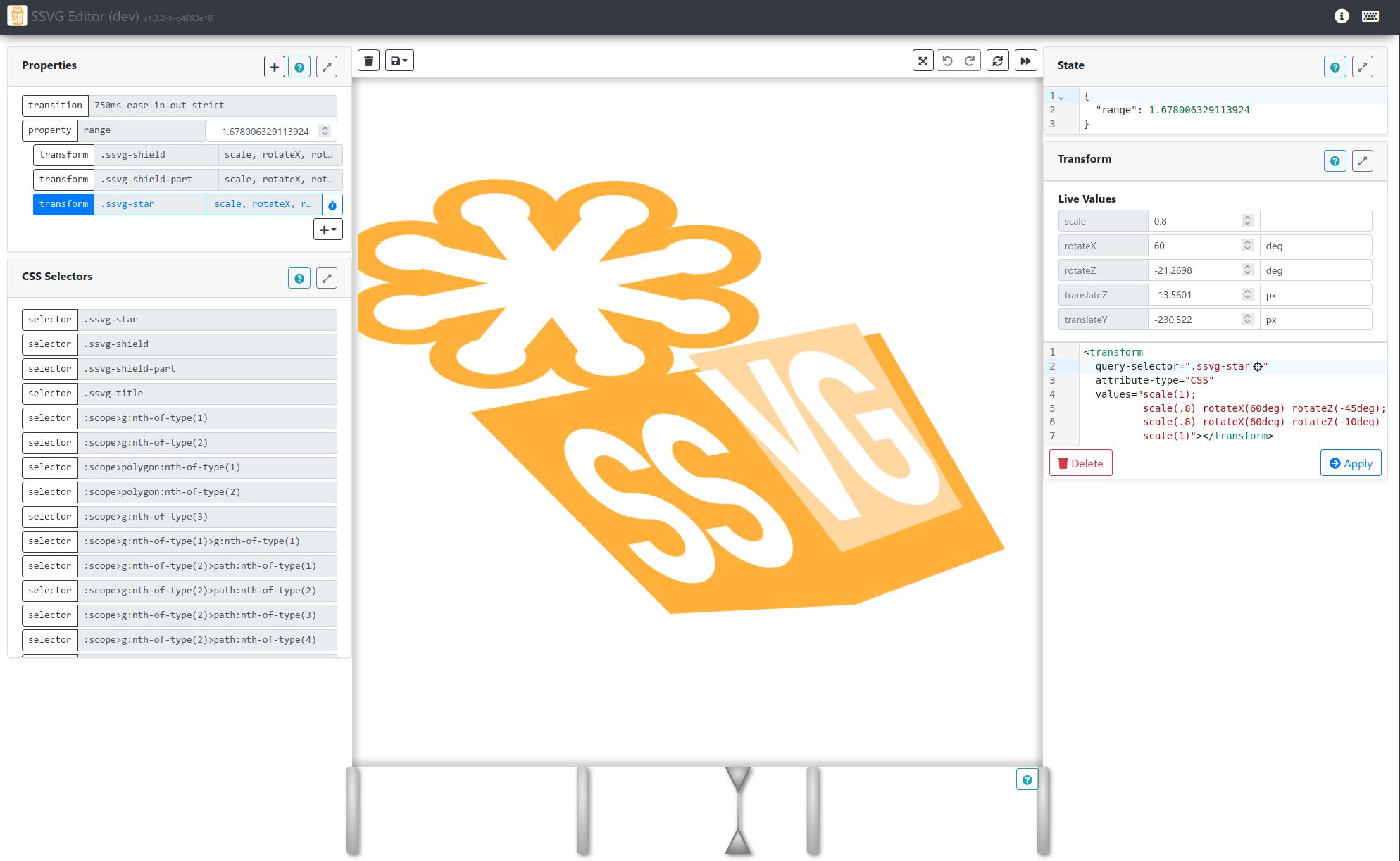
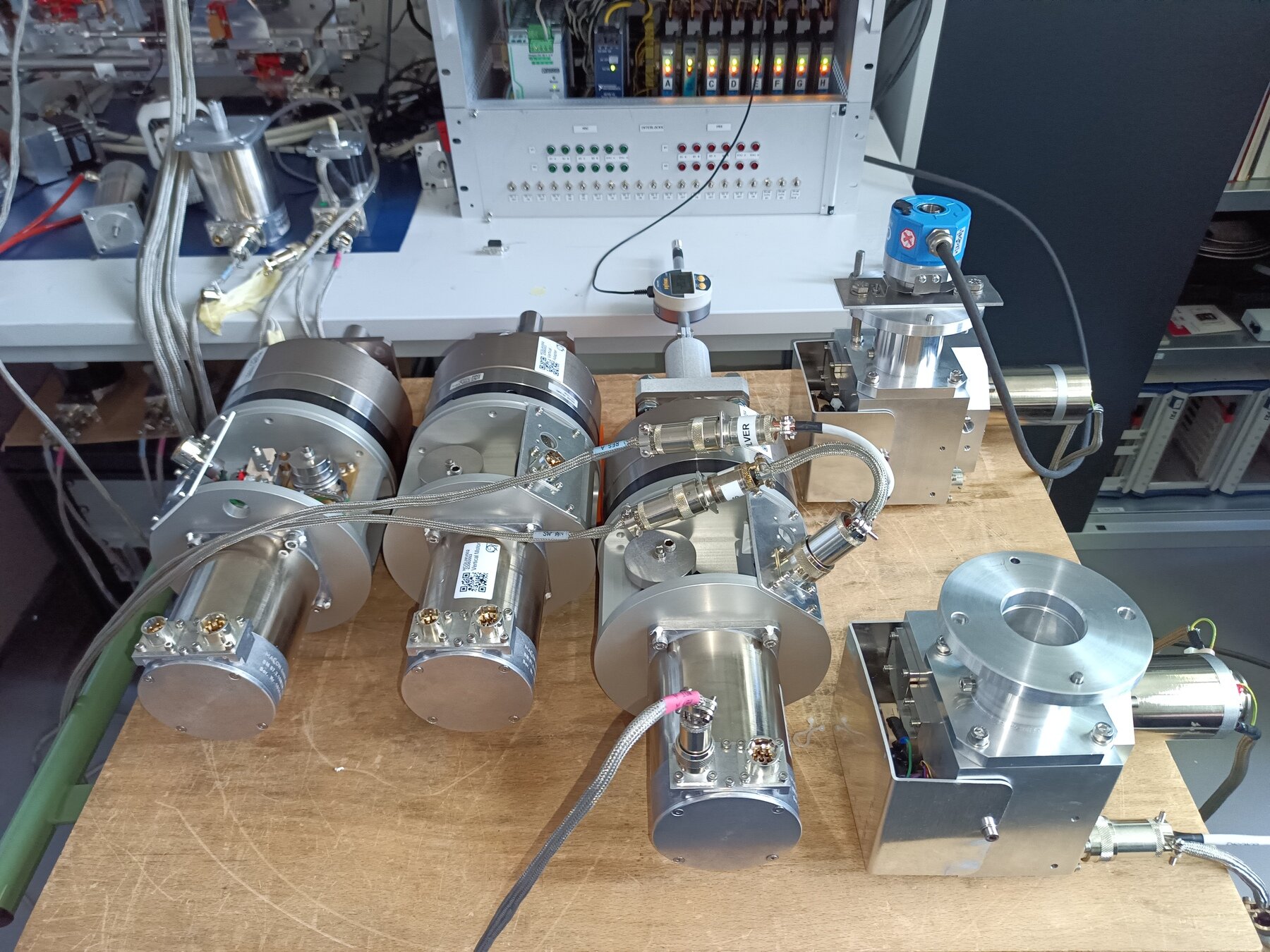

SAMbuCa & SCT functional test-benchs (937 motors-lab)- Setting a workflow up and writing tests may feel overwhelming
- But you'd rather start slow and reach a fast pace than the opposite
- How many teams gets stale being overwhelmed by maintenance and repetitive tasks
- Unit-tests represents about 50% of the development time, but it saves way more on the maintenance and fixes
- technical debt and cost of software errors is hard to measure, but all this is to keep it low
Conclusion 1/2

- Pickup your tools and make a workflow tailored to your needs
- You can rely on existing methodologies and adapt or mix depending on your experience and projects
- Even being a lone developer that will secure your job and make your life easier
-
Securing your production path is vital
- there's no context where it wouldn't apply (being embedded or tiny is not an excuse)
- (Almost) everybody can write code, but deploying and maintaining it at large scale is more of an art
Conclusion 2/2

Questions ?

